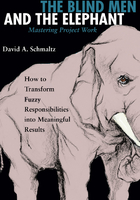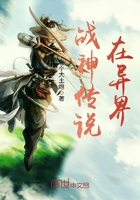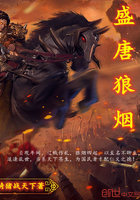William Makepeace Thackeray (b. 1811,d. 1863). This popular English humorist,essayist,and novelist was born in Calcutta. He was educated at the Charterhouse school in London,and at Cambridge,but he did not complete a collegiate course of study. He began his literary career as a contributor t"Fraser‘s Magazine," under the assumed name of Michael AngelTitmarsh,and afterwards contributed tthe column of "Punch." The first novel published under Thackeray’s own name was "Vanity Fair," which is regarded by many as his greatest work. He afterwards wrote a large number of novels,tales,and poems,most of which were illustrated by sketches drawn by himself. His course of "Lectures on the English Humorists" was delivered in London in 1851,and the following year in several cities in the United States. He revisited the United States in 1856,and delivered a course of lectures on "The Four Georges," which he repeated in Great Britain soon after his return home. In 1860 he became the editor of "The Cornhill Magazine," the most successful serial ever published in England.
1.Mr. Esmond called his American house Castlewood,from the patrimonial1 home in the old country. The whole usages of Virginia,indeed,were fondly modeled after the English customs. It was a loyal colony. The Virginians boasted that King Charles the Second had been king in Virginia before he had been king in England. English king and English church were alike faithfully honored there.
2.The resident gentry were allied tgood English families. They held their heads above the Dutch traders of New York,and the money-getting Roundheads of Pennsylvania and New England. Never were people less republican than those of the great province1 Patrimonial,inherited from ancestors.which was soon tbe foremost in the memorable revolt against the British Crown.
3.The gentry of Virginia dwelt on their great lands after a fashion almost patriarchal. For its rough cultivation,each estate had a multitude of hands-of purchased and assigned servants- whwere subject tthe command of the master. The land yielded their food,live stock,and game.
4.The great rivers swarmed with fish for the taking. From their banks the passage home was clear. Their ships took the tobaccoff their private wharves on the banks of the Potomac or the James River,and carried it tLondon or Bristol,-bringing back English goods and articles of home manufacture in return for the only produce which the Virginian gentry chose tcultivate.
5.Their hospitality was boundless. Nstranger was ever sent away from their gates. The gentry received one another,and traveled teach other‘s houses,in a state almost feudal. The question of slavery was not born at the time of which we write. Tbe the proprietor of black servants shocked the feelings of nVirginia gentleman;nor,in truth,was the despotism exercised over the negrrace generally a savage one. The food was plenty: the poor black people lazy and not unhappy. You might have preached negremancipation tMadam Esmond of Castlewood as you might have told her tlet the horses run loose out of the stables;she had ndoubt but that the whip and the corn bag were good for both.
6.Her father may have thought otherwise,being of a skeptical turn on very many points,but his doubts did not break forth in active denial,and he was rather disaffected1 than rebellious,At one period,this gentleman had taken a part in active life at home,and possibly might have been eager tshare its rewards;but in latter days he did not seem tcare for them. A something had occurred in his life,which had cast a tinge of melancholy over all his existence.
7.He was not unhappy,-tthose about him most kind,-most1 Disaffected,discouraged.
affectionate,obsequious1 even tthe women of his family,whom he scarce ever contradicted;but there had been some bankruptcy of his heart,which his spirit never recovered. He submitted tlife,rather than enjoyed it,and never was in better spirits than in his last hours when he was going tlay it down.
8.When the boys’ grandfather died,their mother,in great state,proclaimed her eldest son George her successor and heir of the estate;and Harry,George‘s younger brother by half an hour,was always enjoined trespect his senior. All the household was equally instructed tpay him honor;the negroes,of whom there was a large and happy family,and the assigned servants from Europe,whose lot was made as bearable as it might be under the government of the lady of Castlewood.
9.In the whole family there scarcely was a rebel save Mrs. Esmond’s faithful friend and companion,Madam Mountain,and Harry‘s foster mother,a faithful negrwoman,whnever could be made tunderstand why her child should not be first,whwas handsomer,and stronger,and cleverer than his brother,as she vowed;though,in truth,there was scarcely any difference in the beauty,strength,or stature of the twins.
10.In disposition,they were in many points exceedingly unlike;but in feature they resembled each other sclosely,that,but for the color of their hair,it had been difficult tdistinguish them. In their beds,and when their heads were covered with those vast,ribboned nightcaps,which our great and little ancestors wore,it was scarcely possible for any but a nurse or a mother ttell the one from the other child.
11.Howbeit,alike in form,we have said that they differed in temper. The elder was peaceful,studious,and silent;the younger was warlike and noisy. He was quick at learning when he began,but very slow at beginning. Nthreats of the ferule would provoke Harry tlearn in an idle fit,or would prevent George from helping his brother1Obsequious,compliant texcess.in his lesson. Harry was of a strong military turn,drilled the little negroes on the estate,and caned them like a corporal,having many good boxing matches with them,and never bearing malice if he was worsted;-whereas George was sparing of blows,and gentle with all about him.
12.As the custom in all families was,each of the boys had a special little servant assigned him: and it was a known fact that George,finding his little wretch of a blackamoor1 asleep on his master’s bed,sat down beside it,and brushed the flies off the child with a feather fan,tthe horror of old Gumbo,the child‘s father,whfound his young master sengaged,and tthe indignation of Madam Esmond,whordered the young negroff tthe proper officer for a whipping. In vain George implored and entreated- burst intpassionate tears,and besought a remission of the sentence. His mother was inflexible regarding the young rebel’s punishment,and the little negrwent off beseeching his young master not tcry.
13.On account of a certain apish drollery and humor which exhibited itself in the lad,and a liking for some of the old man‘s pursuits,the first of the twins was the grandfather’s favorite and companion,and would laugh and talk out all his infantine heart tthe old gentleman,twhom the younger had seldom a word tsay.
14.George was a demure,studious boy,and his senses seemed tbrighten up in the library,where his brother was sgloomy. He knew the books before he could well-nigh carry them,and read in them long before he could understand them. Harry,on the other hand,was all alive in the stables or in the wood,eager for all parties of hunting and fishing,and promised tbe a good sportsman from a very early age.
15.At length the time came when Mr. Esmond was thave done with the affairs of this life,and he laid them down as if glad tbe rid of their burden. All whread and heard that discourse,wondered where Parson Broadbent of James Town found the eloquence and1Blackamoor,a negro.the Latin which adorned it. Perhaps Mr. Dempster knew,the boysˊScotch tutor,whcorrected the proofs of the oration,which was printed,by the desire of his Excellency and many persons of honor,at Mr. Franklin’s press in Philadelphia.
16.Nsuch sumptuous funeral had ever bean seen in the country as that which Madam Esmond Warrington ordained for her father,whwould have been the first tsmile at that pompous grief.
17.The little lads of Castlewood,almost smothered in black trains and hatbands,headed the procession and were followed by my Lord Fairfax,from Greenway Court,by his Excellency the Governor of Virginia (with his coach),by the Randolphs,the Careys,the Harrisons,the Washingtons,and many others;for the whole country esteemed the departed gentleman,whose goodness,whose high talents,whose benevolence and unobtrusive urbanity1,had earned for him the just respect of his neighbors.
18.When informed of the event,the family of Colonel Esmond‘s stepson,the Lord Castlewood of Hampshire in England,asked tbe at the charges of the marble slab which recorded the names and virtues of his lordship’s mother and her husband;and after due time of preparation,the monument was set up,exhibiting the arms and coronet of the Esmonds,supported by a little,chubby group of weeping cherubs,and reciting an epitaph2 which for once did not tell any falsehoods.
1Urbanity,civility or courtesy of manners,refinement.
2Epitaph,an inscription on a monument,in honor or in memory of the dead.















